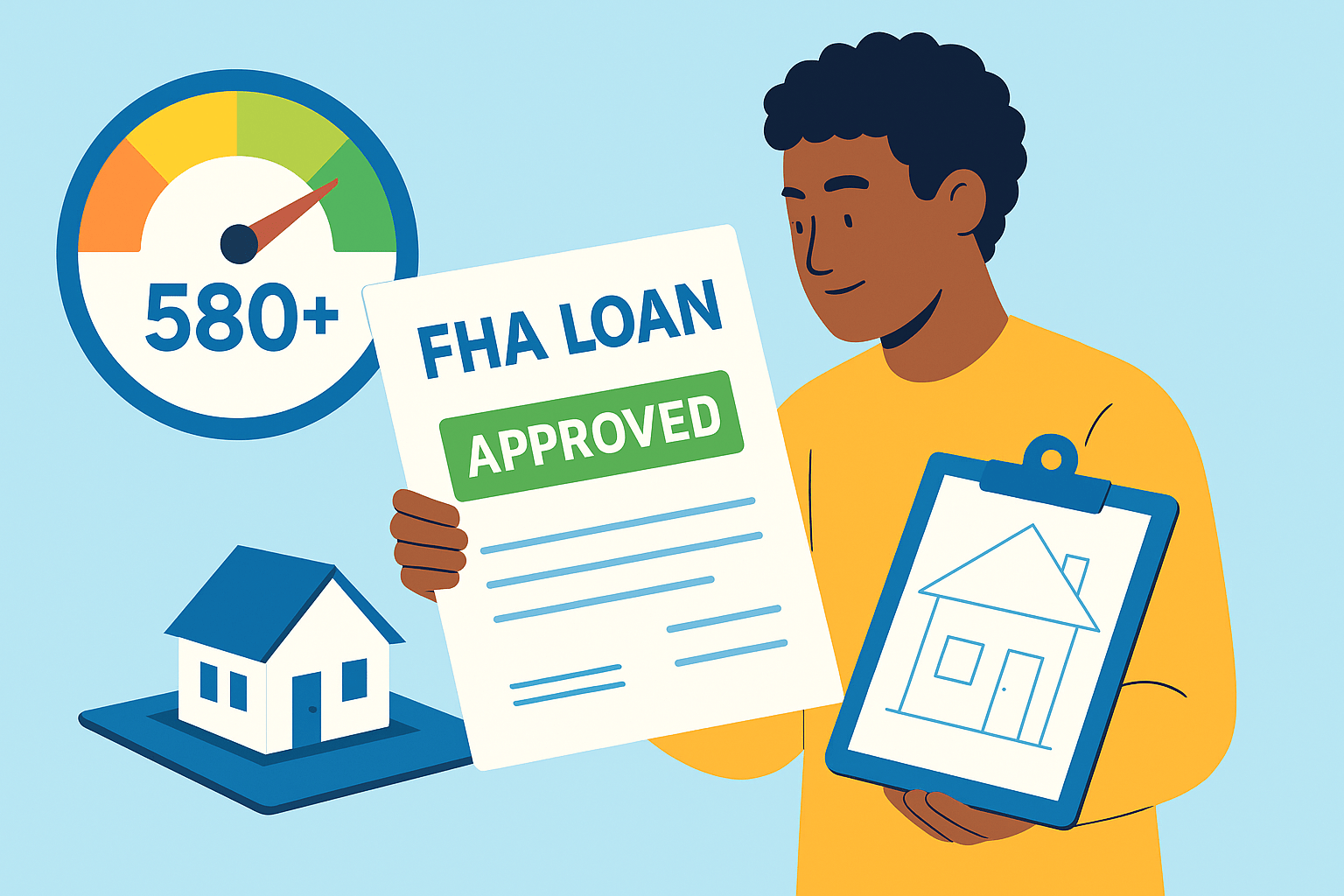Mortgage Credit Certificate First-Time Homebuyer Assistance Programs
Mortgage Credit Certificate: How Montana First-Time Buyers Can Turn Taxes Into Monthly Savings
Buying your first home in Big Sky Country is thrilling, yet those first–year costs can feel like scaling the Beartooth Pass in a snowstorm. Enter the Mortgage Credit Certificate—Montana’s secret weapon that converts a slice of your mortgage interest into a dollar-for-dollar federal tax credit. In practical terms, the program can lower your monthly outlay and help you qualify for a slightly larger loan. Ready to see how the numbers play out? Keep reading.
What Is the Mortgage Credit Certificate, Exactly?
The MCC program is a federal tax incentive administered in Montana by the Montana Board of Housing. Instead of a standard deduction, qualified borrowers receive up to a 20% credit on the mortgage interest they pay each year, capped at $2,000 annually. The remaining 80% of interest is still deductible, so you’re essentially double-dipping.
Because the credit lowers your IRS bill, lenders may count the monthly savings as extra income—boosting purchasing power by hundreds of dollars. Over a 30-year term, an MCC can deliver tens of thousands in cumulative tax relief.
- Primary benefit: Dollar-for-dollar reduction of federal taxes.
- Secondary benefit: Improves debt-to-income ratios, helping borderline borrowers qualify.
- Longevity: Credit lasts as long as you occupy the home and hold the original loan.
How Does a Mortgage Credit Certificate Work?
Imagine you close on a $300,000 home at a 6.25% fixed rate. In year one, interest runs roughly $18,600. With Montana’s 20% MCC rate, $3,720 becomes a direct tax credit. The IRS essentially hands you back $310/month, which you can pocket or plow back into the mortgage.
The lender may factor that $310 into your qualifying income. For a borrower making $65,000, the MCC boosts effective earnings by 5.7% without lifting a finger. Over five years, the credit could exceed $17,000—enough to install solar panels or finish that basement bar.
Who Is Eligible for Montana’s MCC Program?
Montana tailors the Mortgage Credit Certificate to low- and moderate-income households. Criteria change slightly year to year, but the 2024 thresholds look like this:
- Income limits: Up to $92,040 for 1-2 person households; $107,380 for 3+ (higher in targeted counties).
- Purchase price cap: Typically $481,176 statewide; up to $588,104 in targeted areas.
- First-time buyer rule: Cannot have owned a principal residence in the past three years—unless you buy in a federally designated target county or are a qualified veteran.
- Occupancy: Home must be your primary residence within 60 days of closing.
- Homebuyer education: At least one borrower must complete HUD-approved counseling.
Because the MCC piggybacks on your mortgage, you also need to meet standard underwriting guidelines. A 640+ credit score and 41% debt-to-income ratio are common benchmarks, though some lenders stretch further with compensating factors.
“Will the MCC Delay My Closing?”—And Other Lender Concerns
Banks sometimes shy away from add-on programs fearing red tape. Yet experienced Montana lenders integrate the MCC application directly into loan processing. Expect these milestones:
- Reservation: Your lender reserves the credit with Montana Housing once you’re under contract.
- Compliance review: Income, purchase price, and IRS forms are vetted—usually within 48 hours.
- Certificate issuance: The MCC number is stamped on closing documents.
- Year-end filing: You claim the credit on IRS Form 8396; most tax software walks you through it.
Seasoned mortgage officers report the entire MCC add-on adds “maybe a day” to the timeline. The paperwork fits in between appraisal updates and title checks—no extra notary trip required.
Real-Life Snapshot: The Kalispell Newlyweds
Alicia and Ben, both teachers, eyed a 1970s ranch outside Kalispell. Their combined salary—$70,000—felt tight against rising Flathead County prices. By leveraging an MCC, their loan officer boosted qualifying income by $250 monthly, nudging their approval from $280k to $310k. They snagged the ranch, refinished hardwoods during summer break, and still received a $2,400 tax refund the following April. Alicia called it “getting a raise without asking the principal.”
PAA: How Long Can I Keep My Mortgage Credit Certificate?
The MCC doesn’t expire on a set date. As long as you live in the home and retain the original mortgage, the credit continues. Refinance or sell, and it generally terminates—though Montana allows a one-time reissue if you refinance into a lower rate without pulling cash out. That nuance is rarely discussed in national blogs, yet it can preserve thousands for savvy homeowners when rates dip.
Keep in mind the credit percentage (20%) and the $2,000 cap remain fixed, but your interest payments decline as you amortize. Expect the tax benefit to taper slowly over time, mirroring your mortgage’s interest curve.
PAA: Does the MCC Affect My Ability to Claim Mortgage Interest Deduction?
Short answer: you can have both. The IRS lets you deduct the remaining 80% of interest after carving out the MCC portion. Suppose you paid $10,000 in mortgage interest and claimed a $2,000 MCC credit; you may still deduct $8,000. This dual approach often pushes itemized deductions over the standard threshold, especially for homeowners who pay property taxes or donate to charity.
Be sure to adjust Schedule A to reflect the reduced interest, or you risk double-counting—a red flag for auditors. Most CPAs and reputable tax software prompt you automatically, but DIY filers should double-check.
Benefits You Won’t See on the Brochure
- Cash-flow boost can offset HOA hikes: If your condo board hikes dues by $40/month, MCC savings might neutralize the sting.
- Lower cost of homeownership prompts faster equity build: Some buyers apply the monthly credit to principal, shaving years off their loan.
- Peace of mind: Fixed federal credits create a mental buffer against future interest-rate volatility. It’s like locking in a “discount” at the IRS checkout line.
Potential Drawbacks & How to Dodge Them
No state program is perfect. Watch for these speed bumps:
- Recapture tax: Sell within nine years at a profit and you might owe back a portion. Montana Housing offers a subsidy to offset recapture in many cases.
- Income growth: If your salary spikes, the MCC doesn’t phase out, but your lender can’t count future raises at origination.
- Paperwork upkeep: Forgetting Form 8396 means leaving money on the table. Set a phone reminder on January 15 every year.
Step-by-Step Guide: Securing Your MCC in Montana
- Choose a participating lender. Not all banks are signed up. Ask directly before you apply.
- Get prequalified. Provide income docs so the lender can verify you’re under the cap.
- Sign the MCC application. It’s usually three forms—less than a car rental agreement.
- Complete homebuyer education. Classes are online or one-evening workshops across the state.
- Close on your home. The certificate is issued simultaneously and recorded with the loan.
- File Form 8396 annually. Attach it to your 1040; save the acknowledgment for your records.
FAQ
Is the Mortgage Credit Certificate only for single-family houses?
No. Eligible properties include condos, townhomes, and some duplexes, provided you live in one unit.
Can I layer the MCC with down-payment assistance?
Yes. Montana’s Bond Advantage DPA pairs smoothly with the MCC, though both count toward income limits.
What if I move out but keep the property as a rental?
The credit stops in the year you vacate. You don’t have to repay previous credits unless recapture rules apply.
Is there an upfront fee?
Montana Housing charges $500 for the certificate, typically rolled into closing costs.
Do I need perfect credit?
No. Scores as low as 640 may qualify, though better credit improves rate options.
Ready to Turn Tax Liability into Buying Power?
The Mortgage Credit Certificate has helped thousands of Montanans stake a claim in the state’s competitive housing market. If you’re eyeing your first front porch—whether it overlooks the Bitterroot Valley or downtown Billings—don’t leave this tax credit unclaimed.
Call or email our certified mortgage advisors today to check eligibility and lock in your MCC reservation before rates or income limits change. One 15-minute conversation could save you $2,000 every year you own your home.
Your Montana home is waiting. Let’s make the IRS help you pay for it.
Proposed URL slug: /blog/mortgage-credit-certificate-montana-guide
Explore More Blog Posts
Checkout more similar posts those will help you to choose better property.












 Profile
Profile Password
Password Saved Properties
Saved Properties Sign Out
Sign Out
 +0.01
+0.01
 -0.15
-0.15

